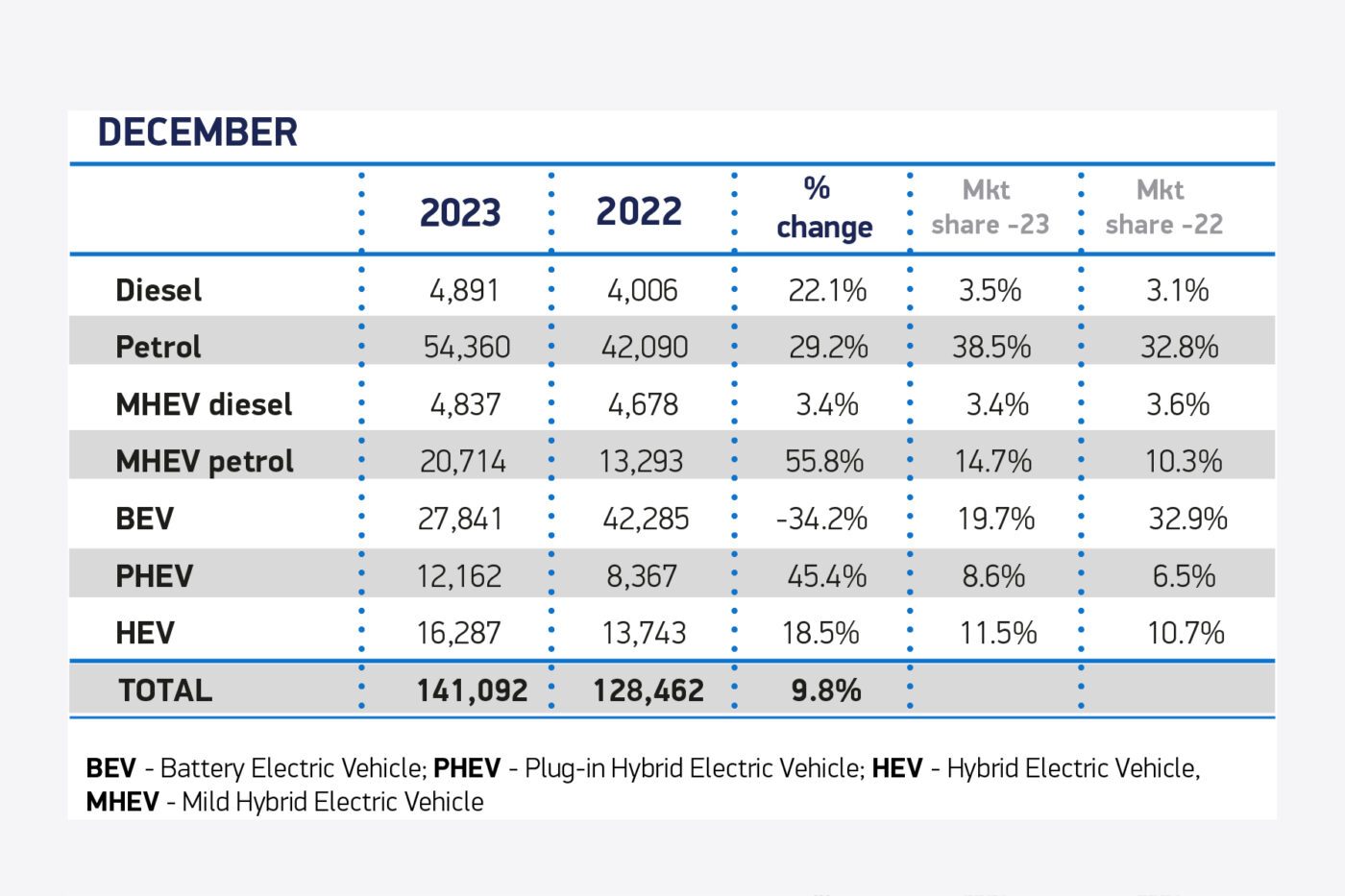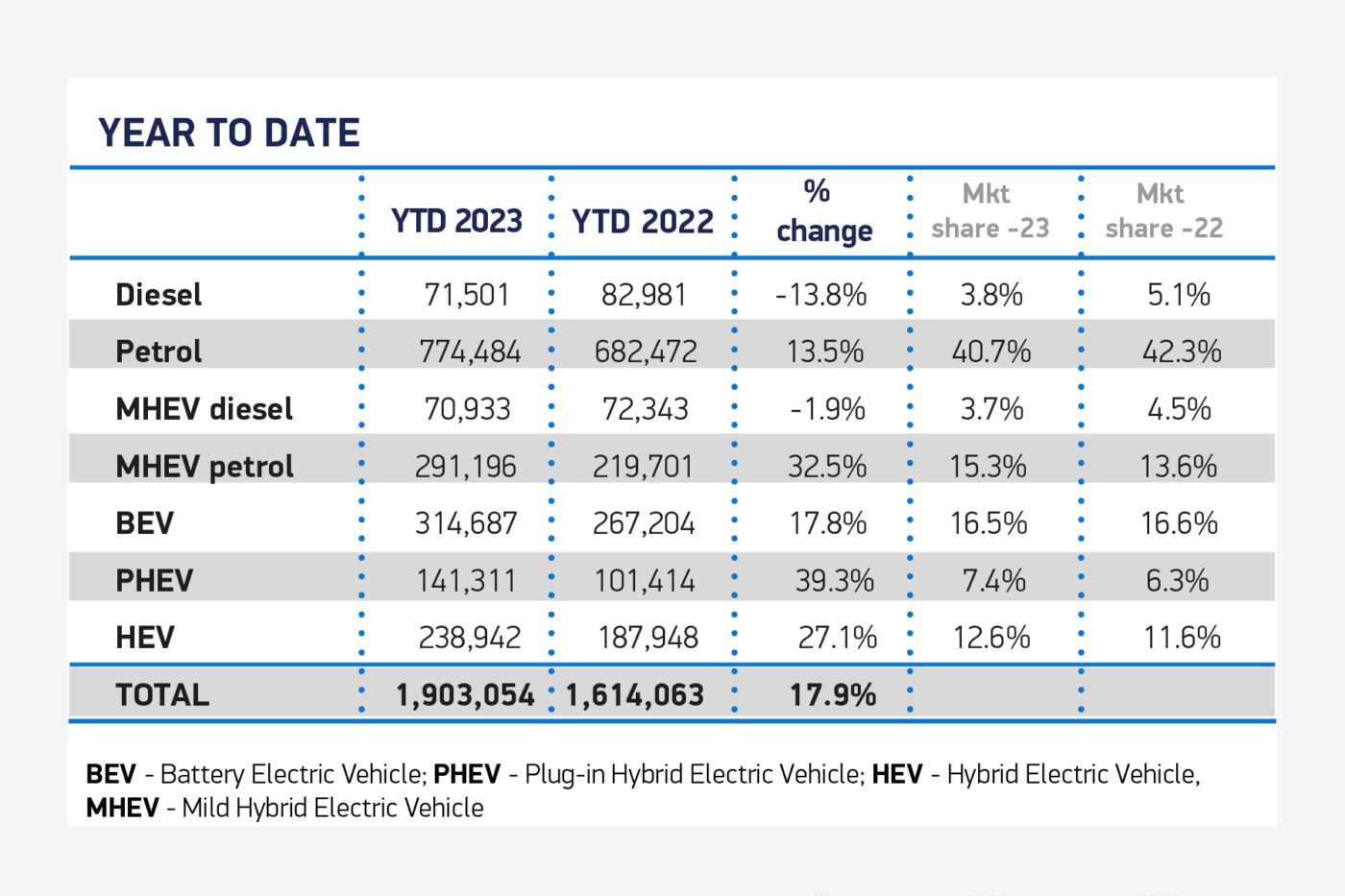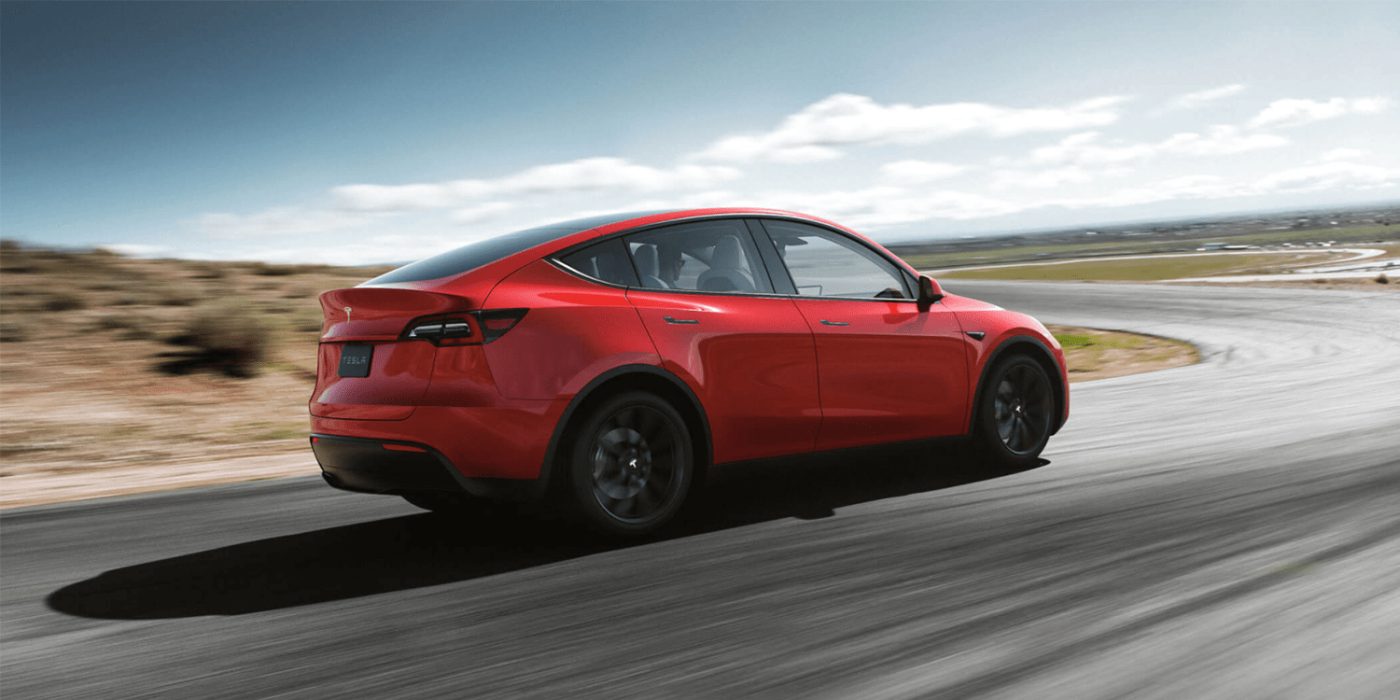Nearly 315,000 new electric cars registered in the UK in 2023
Compared to 2022, the number of BEVs grew 17.8 per cent last year, even though December 2023 was not a good month for purely electric vehicles in the UK. The number of BEVs sold (27,841 units) dropped 34.2 per cent compared to December 2022 (42,285 units). However, it is also important to note that December 2022 was exceptional, and “significant numbers of orders were able to be fulfilled in the month.”
According to the latest figures from the Society of Motor Manufacturers and Traders (SMMT), one in six new cars registered in 2023 were battery electric. SMMT also states that professional fleets and businesses primarily drove the uptake of EVs, as they benefit from “compelling tax incentives.”
Only one in every eleven private buyers opted for a purely electric model in 2023. This number could grow in the coming years as even more models become available and manufacturers are required to sell a certain percentage of electric vehicles.

While the UK no longer subsidises EV purchases, it has implemented a ZEV mandate for carmakers. It means that a set percentage of total sales must be zero emission. Starting this year, at least 22 per cent of cars sold must be locally emission-free. For vans, there is a target of ten per cent. The quota will increase to 80 per cent for cars and 70 per cent for new vans by 2030. By 2035, all new vehicles sold must be electric.

The Tesla Model Y was the most sold car in the UK in December, reaching 4,816 units. With respect to the whole of 2023, it made fifth place with 35,899 units sold last year. No other electric model made the top ten – not for December or 2023.
It is thus evident that Tesla’s electric mid-size SUV was the best-selling electric vehicle in the UK last year. The MG4 ended up in second (21,715 units), and the Audi q4 e-tron (16,757 units) in third place.
| 1 | Tesla Model Y | 35,899 |
| 2 | MG Motor MG4 | 21,715 |
| 3 | Audi Q4 e-tron | 16,757 |
| 4 | Tesla Model 3 | 13,536 |
| 5 | Polestar 2 | 12,542 |
| 6 | Volkswagen ID.3 | 10,295 |
| 7 | Kia e-Niro | 10,084 |
| 8 | BMW i4 | 8,940 |
| 9 | Volkswagen ID.4 | 8,495 |
| 10 | Skoda Enyaq iV | 8,136 |
Incidentally, the Nissan Qashqai was the second-most-sold vehicle in the UK in 2023. As reported, Nissan is considering a battery-electric version of the Qashqai, as well as the Nissan Juke, which ranked eighth overall. Both vehicles would be manufactured in Sunderland.
As noted above, the UK no longer offer consumer incentives for EV purchases. Something that the SMMT continues to criticise.
“With vehicle supply challenges fading, the new car market is building back with the best year since the pandemic. Energised by fleet investment, particularly in the latest EVs, the challenge for 2024 is to deliver a green recovery,” says SMMT Chief Executive Mike Hawes. “Government has challenged the UK automotive sector with the world’s boldest transition timeline and is investing to ensure we are a major maker of electric vehicles. It must now help all drivers buy into this future, with consumer incentives that will make the UK the leading European market for ZEVs.”
The SMMT expects vehicle registrations to reach 1.97 million units this year. Based on their latest market outlook published in November, BEVs could make up 22.3 per cent of the market share with 439,000 units.





0 Comments